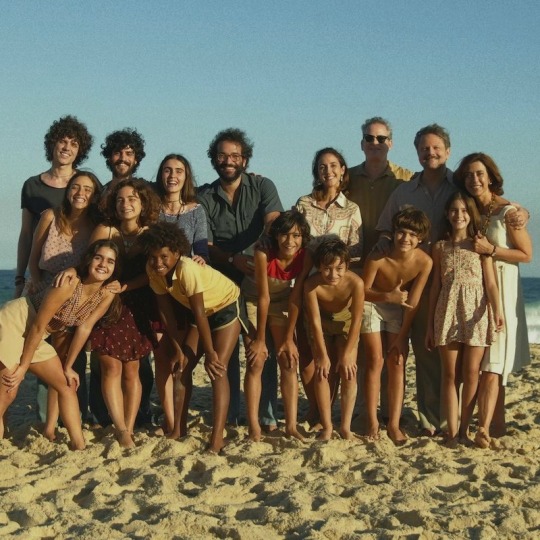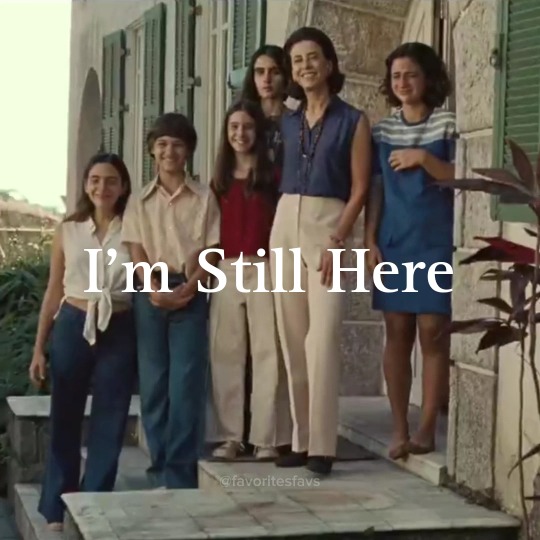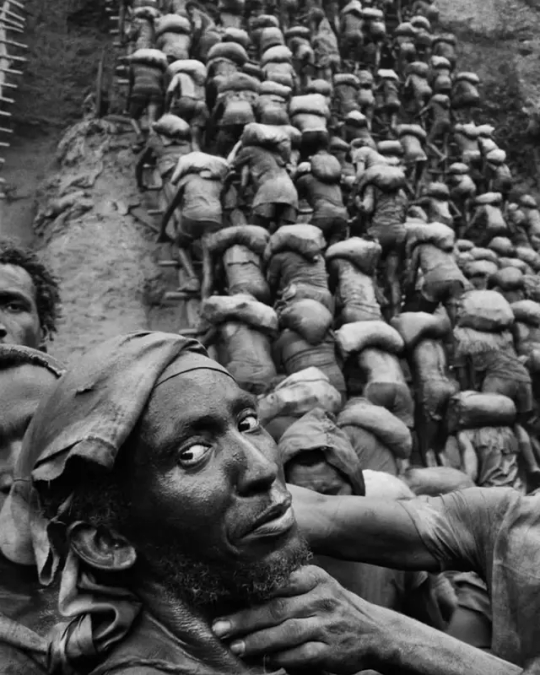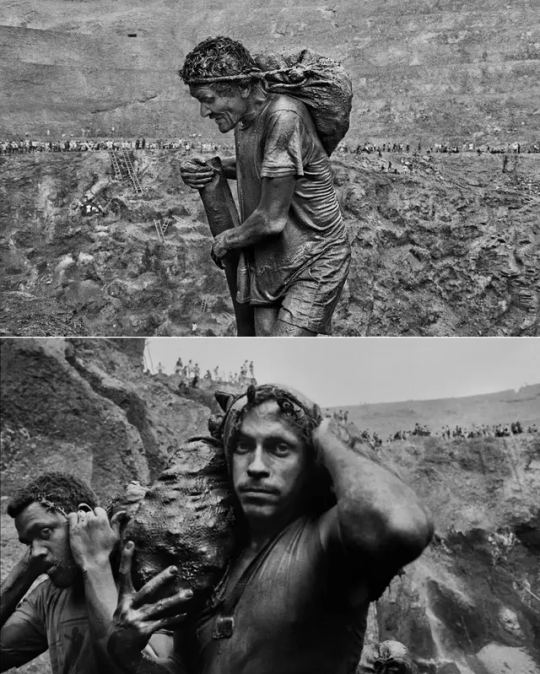#brazil history
Explore tagged Tumblr posts
Text
Okay, hear me out
You may think I’m being too soft or nonsensical but I’m honestly not so mad at that gringo
Because we never know everything. Even if we try to keep ourselves educated and informed, there’s always something that we miss. Heck, Brazilian culture/history is most unfortunately not well known enough around the globe.
So yes, when faced with statements like the first one it’s better to spread awareness and point out the absurds but it may be better not to jump the person already thirst for their blood. Give them the chance to learn what they didn’t before in a civilized manner, simply because they are human like us, and therefore not all-knowing.
Of course, if the person is an asshole about it then you can jump them. But at least at first be kind while spreading awareness, and instead redirect your (very well justified) rage to who deserves it. For example, to the motherfuckers that want to bring Brazilian Dictatorship back. Because hell no.
As for anyone else who’s learning more about the Tropicalia by this post, yes, the history behind that beauty is… heavy, to say the very least.
In more ways than another, Brazil would be that one funny friend that is always smiling but is actually dying inside.
#ditaduranuncamais
losing my mind at this

like. something not soooo fun was happening in brazil in the late 60s
3K notes
·
View notes
Text

Vanja Orico as Maria Clódia in The Bandit / O Cangaceiro (1953)
("Cangaceiro" was a pejorative expression used to refer to bands of poor peasants who inhabited the northeastern deserts of Brazil. They wore leather clothing and hats covered in symbols and metal ornaments. They carried carbines, revolvers, shotguns, and the long narrow knife known as the peixeira.
The 1920s and 1930s saw the height of cangaceiro activity, with the most prominent bands numbering up to as many as 100 bandits. The bandits often behaved well to the poorer sections of society. They performed acts of charity, bought goods for higher than usual prices from small shopkeepers and gave free parties / bailes. In contrast, the wealthy were robbed, targeted for extortion, and were often kidnapped and held for ransom.)

In 1968, an episode marked Vanja's life forever. At the key moment of the burial of student Edson Luís, killed by a military dictatorship, she stood in front of the army, raised a white handkerchief and shouted "Don't shoot, we are all Brazilians." Vanja was imprisoned for 3 days. She wasn't tortured, but she took "a few blows to the head."
#vanja orico#cangaceiro#brazil history#actresses#women directors#the bandit 1953#robin hood#bandits#positive
6 notes
·
View notes
Text
Something about both Rue and Thresh being black and their district having using whiping as punishment constantly.... hmmm I wonder what Suzanne Collins wanted to say with this...
Anyway, it reminded me of revolta da chibata
6 notes
·
View notes
Text
"Brazilian hand games and American hand games!!!! Realizing that the art of hand games comes from Africa! I never thought about it before. It was just embedded in our childhood."
"The collective consciousness is real"
"My goodness. We played this in Nigeria too."
There's a documentary with @jamilawoods called "Black Girls Play" about the history of handclap games in the US and their importance in the Black community. And a book before it called The Games Black Girls Play, by Kyra D. Gaunt.
#black culture#brazillian culture#black people#black is beautiful#music#africa#childhood#black history#black women#brazil#africans#african american#black american culture#black excellence#black lives matter#blacklivesmatter#handclap games#black films#documentary#books#books and reading
5K notes
·
View notes
Text









I'm Still Here (2024)
#im still here#ainda estou aqui#fernanda torres#fernanda montenegro#walter salles#i'm still here#central station#central do brasil#movies#brazil#brasil#rio de janeiro#golden globes#winner#cute#icons#messy#pinterest#random#tumblr#moodboard#ditadura#series#aesthetic#real history#selton mello#rubens paiva#best movie#best actress#oscars
3K notes
·
View notes
Text
youtube
The Dark Side of Brazil - The Dark Truth Exposed | geography facts
In this video, we'll be taking a look at the dark side of Brazil. Explore the social inequality issues, environmental challenges, and corruption that persist in this captivating nation. Discover the lesser-known aspects of Brazil and the human rights issues that have recently come to light. By the end of this video, you'll have a better understanding of the hidden side of Brazil and how you can contribute to addressing these issues.
#brazil's environmental problems#human rights violations in brazil#environmental issues in brazil#brazil political corruption#the dark side of brazil#brazil economic crisis#brazil environmental policy#brazil financial crisis#brazil economic problems#human rights issues in brazil#brazil history#brazil economy#dark side of brazil#brazil social inequality#corruption in brazil#geography guru#geography facts#brazil facts#negative sides of living in Brazil#Youtube
1 note
·
View note
Text


" I want to dedicate it to my mother. She was here 25 years ago. And this is like a proof that art can endure through life"
Fernanda Torres dedicating her Golden Globes Best Actress win to her mother Fernanda Montenegro
#fernanda torres#fernanda montenegro#brazilian winners#GOLDEN GLOBES 2025#i'm still here#eu ainda estou aqui#marcelo rubens paiva#walter salles#BRAZILIAN HISTORY#BRAZILIAN FUCKING HISTORIC MOMENT#brazil#BRAZILIAN ART#brazilian#ART CAN ENDURE THROUGH LIFE
527 notes
·
View notes
Text

Carnival. Salvador, Bahia, Brazil - 1941
Photo: Pierre Verger
701 notes
·
View notes
Text
"I'm Still Here" is an important movie about a horrible period of brazilian history but it's also an important movie about grief.

It's about the realization that your life has been profoundly, irreparably changed forever that never comes in the moment of pain. Sometimes it hits you at a diner and you just have to keep it together because who else will? Can't cry now, you just have to swallow your grief and keep going.
It's about love for and from this family, about little moments of life with people coming and going, dancing over good meals...And then it’s all suddenly taken away.
It's a movie about ghosts.
The movie shows the "ghost of the dictatorship" and how it haunts, but also the ghosts of losing people you loved deeply and suddenly. It's why this specific and very short dialogue from the movie makes me tear up every time I remember it:
“When did you bury Dad?”
"What?"
"When did you realize Dad was never coming home?"
Because how many days after his death did I, too, wait for my Dad to come home to hug me until one ordinary day at school, having a hard time on a math test, I realized that he was never coming back to help me study math ever again? And how many times did the children of Rubens Paiva felt the same as I did doing their daily and ordinary tasks?
This is a tough thing. The perception of grief in the middle of a meeting where you can't send a message to that person complaining, a photo that would have been funny to them but you no longer have that person, a plan that evaporates in the nonexistence of the other...
The pain of loss always hits much harder in everyday life... Like that scene of Eunice Paiva at the ice cream shop without her husband and seeing other families being complete while hers wasn't.
This idea of the vacuum of an everyday space is deadly...And even years later, when you think you're over it, it hits just like the day it happened: while listening to a song they liked, watching a movie you know they would've loved to watch with you, a book they showed you, eating a food you two would eat together...Their ghosts are always there, the grief is always looming.
#i'm still here#ainda estou aqui#brasil#brazil#on grief#brazilian cinema#fernanda torres#selton mello#walter salles#brazilian history#ramblings.txt#grief#oscars
343 notes
·
View notes
Text
Character in the movie 'I'm Still Here,' Rubens Paiva investigated the US-funded coup plot in the 1962 Brazilian elections
Killed by the dictatorship, the federal deputy led a Parliamentary Commission of Inquiry that investigated US financing

Rubens Paiva, a former Brazilian congressman murdered by the Brazilian military dictatorship (1964-1985), became known after the release of the film 'I’m Still Here' (2024), directed by Walter Salles and starring Selton Mello as Rubens and Fernanda Torres as his wife, Eunice Paiva.
For her performance, Fernanda Torres was awarded Best Actress at the Golden Globes, and the film received three Oscar nominations on Thursday (23): Best Actress for Fernanda Torres, Best Film, and Best International Film.
Prior to the story being shown on screens, Rubens Paiva's parliamentary career reveals his political actions in confronting reactionary forces that, supported by the US government, planned the 1964 military coup that deposed then President João Goulart.
Elected a federal deputy in 1962 by the Brazilian Labor Party (PTB, in Portuguese), the same party that then-President João Goulart – dubbed Jango – belonged to, Paiva played a central role in the fight against the coup that was already taking shape in 1963: he was vice-president of the Parliamentary Commission of Inquiry (CPI, in Portuguese), set up to investigate allegations of US funding of conservative politicians to destabilize and overthrow the Jango government.
Continue reading.
#brazil#brazilian politics#politics#united states#history#democracy#international politics#rubens paiva#image description in alt#mod nise da silveira
125 notes
·
View notes
Text

Brazilian Landscape with a Worker's House, Frans Post, ca. 1655
#art#art history#Frans Post#landscape#landscape painting#landscape art#Brazil#South America#Dutch Golden Age#Baroque#Baroque art#Dutch Baroque#Dutch art#17th century art#oil on panel#Los Angeles County Museum of Art#lacmamuseum#lacma
233 notes
·
View notes
Text
Congratulations to the incredible Beatriz Souza for winning the gold medal in the Women's Judo +78kg category! 🥋🇧🇷



#beatriz souza#team brasil#team brazil#brazil#paris olympics#olympics paris 2024#paris olympics 2024#olympics 2024#2024 olympics#olympics#brazil olympics#judo#women's history#woc#celeb#judo olympics#womens judo#womens sports#sports#2024 paris#paris 2024#paris#paris france#judoka
292 notes
·
View notes
Text






« Tarsila do Amaral. Peindre le Brésil »
Musée du Luxembourg, Paris
#art#painting#art history#brazilian art#brazil#latinx artist#latin american art#tarsila do amaral#drawing
278 notes
·
View notes
Text





Serra Pelada Gold Mine (Pará, Brazil, 1986)
Author: Sebastião Salgado | Instagram | ICP
#hyperrealism#hyperrealistic#gold mining#gold mine#mining#brazil#1980s#80s#eighties#sebastiao salgado#history#sealed in time#black and white#black & white#b&w#photography#historical photos#history photos#black and white photography#rare photos#vintage photos#worldhistory#old photos
79 notes
·
View notes
Text
so are all brocedes girlies living vicariously through pierresteban right now or is that just me
#brocedes#lewis hamilton#nico rosberg#pierresteban#pierre gasly#brazil gp 2024#f1#formula 1#teammate rivalries go hard omfg#what was it esteban said today?#something about how he was thinking about pierre on the final lap and how they've etched their names TOGETHER into the history books#and then the commentator going#“from friends to rivals to teammates to frenchmen on the podium” or sm like that#like all of it is SCREAMING brocedes#everything but a lover core#everything AND a lover#something about the red string of fate connecting you all throughout your life#and you can't escape it no matter how much you try#doomed by the narrative#something about how pierre and esteban escaped it#just for a second#and tomorrow may be different but today is today
97 notes
·
View notes
Text
Some brazilian queer musical artists that I love and want to share ❤️
Bea Duarte

Bea is a pansexual autistic woman that writes amazing songs with criticism against the patriarchy and the institutional church (that, unfortunately, has a lot of power in Brazil and constantly harms women, the LGBTQIA+ community and victims of SA and domestic violence). She's also a witch (not wiccan) and honors the Sacred Femininity. My favorite song of her: Lilith.
Jão

Jão is a bisexual man that writes mostly romantic pop songs. His songs are extremely adorable and addictive, example: Alinhamento Milenar.
Liniker

Liniker is a gorgeous black transgender woman that won two prizes in Prêmio Multishow 2024, 'Artist of the Year' and 'Album of the Year'. Her album Caju is simply fantastic, the most beautiful thing I've listened to in 2024. Her music style MPB, R&B, soul, blues and samba.
Legião Urbana

Legião Urbana was one of the most iconic brazilian rock bands since its formation in 1982, it also has popularity in the brazilian Gothic subculture. Renato Russo, the main vocals, was an openly queer man that unfortunately passed away in 1996. His importance and impact in Brazilian music industry remains until this day. One of my favorite hits is: Pais e Filhos.
Pabllo Vittar

Pabllo Vittar is a brazilian drag queen that is now considered the world's most famous drag queen aside from RuPaul. She achieved success in 2017 with the hits KO and Corpo Sensual, and now she has more than 5 successful albuns and another hit in 2024, Alibi, featuring Sevdaliza (serbian) and Yseult (french).
Gloria Groove

Gloria Groove is also a drag queen that featured more than once with Pabllo Vittar. One of her biggest hits is Vermelho, her music style is generally pagode, funk, R&B and pop. She recently made an interview with Cynthia Erivo and Ariana Grande staring in 'Wicked'.
Ney Matogrosso

Although Ney Matogrosso never confirmed any label to himself, he always fought for the LGBTQIA+ community and was open about his relationships with both men and women. He was an important voice during the Military Dictatorship (1964-1985). One of my favorites songs of his is Sangue Latino, it played in the brazilian Netflix show Cidade Invisível.
#brasil#brazil#lgbtqia+#queer#queer artist#lgbtqia+ history#art#queer media#queer music#brazilian music#música brasileira#liniker#pabllo vittar#gloria groove#bea duarte#jão#ney matogrosso#legião urbana#goth subculture#transgender rights#cidade invisível#brblr
61 notes
·
View notes